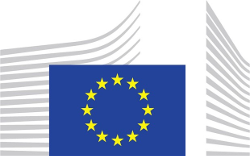
Improving Member States preparedness to face an HNS pollution of the Marine System (HNS-MS)
Funding
The European Commission's Humanitarian aid and Civil Protection department (DG-ECHO) aims to save and preserve life, prevent and alleviate human suffering and safeguard the integrity and dignity of populations affected by natural disasters and man-made crises.
In the field of civil protection, the EU plays an "enabling role" to support, coordinate or supplement the actions of Member States in the prevention of, preparedness for, and response to disasters. The primary responsibility for the protection of people, as well as the environment and property, including cultural heritage, lies with Member States. Consequently, it is Member States who bear the financial costs of most civil protection actions, leaving the EU civil protection budget relatively small (compared to that for humanitarian aid). However, every year, European Commission's DG-ECHO publishes a number of calls for proposal concerning a range of humanitarian and civil protection efforts. The budget for the implementation of the Union Civil Protection Mechanism for 2014-2020 is €368.4 million of which €223.7 million shall be used for prevention, preparedness and response actions inside the EU and €144.6 million for actions outside the EU.
The project HNS-MS is co-financed by DG-ECHO civil protection. It has a total budget of €645.283, 75% of which is financed by DG-ECHO.

About the project
HNS-MS is a decision-support tool that Belgian and French maritime authorities as well as coastguard stations can activate in order to forecast the drift, fate and behavior of acute marine pollution by Harmful Noxious Substances (HNS) accidentally released in the marine system.
Contact us
Copyright © 2015–2025 HNS-MS Consortium
 HNS-MS has been funded by DG-ECHO under agreement ECHO/SUB/2014/693705 and runs from 1 January 2015 to 31 March 2017.
HNS-MS has been funded by DG-ECHO under agreement ECHO/SUB/2014/693705 and runs from 1 January 2015 to 31 March 2017.